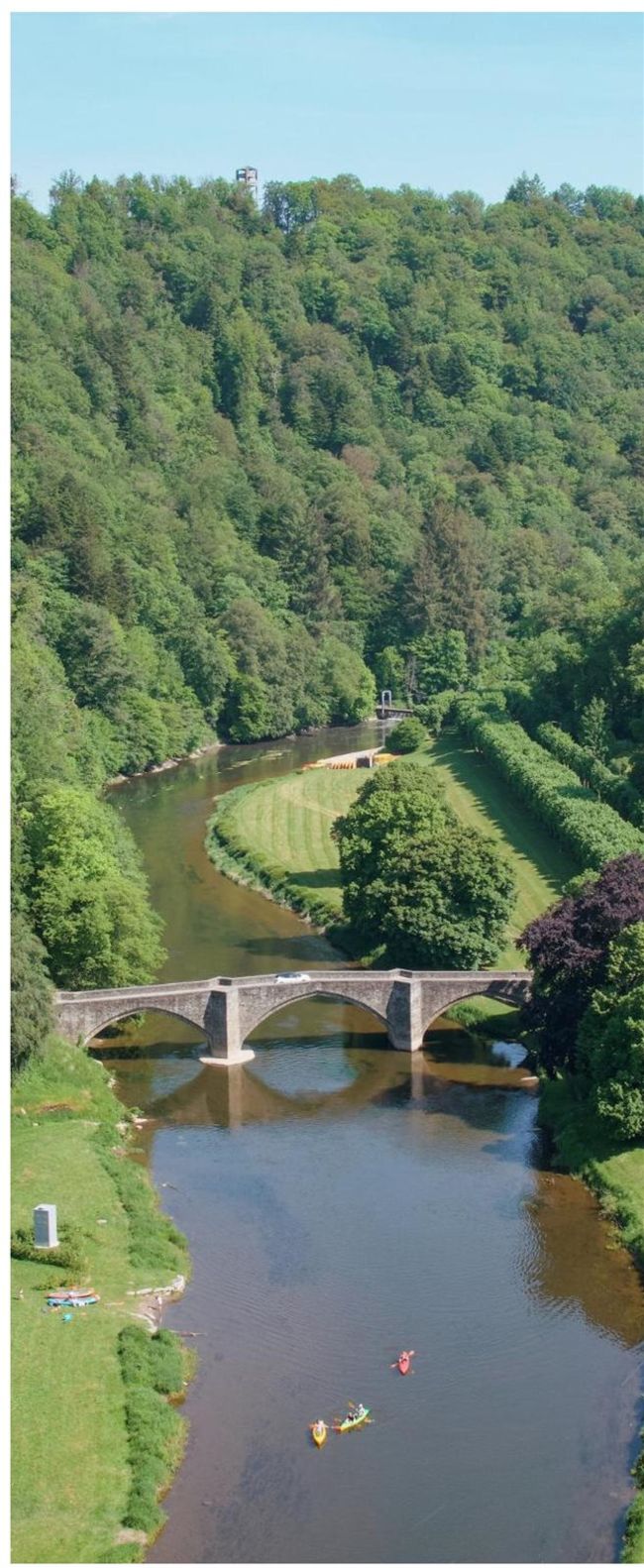No land take in a cross-border metropolitan context: Province of Luxembourg and Grand Duchy of Luxembourg
Alexandre Petit, Head of territorial strategy department, IDELUX Group
In a cross-border metropolitan context with high pressure on land, as is the case in the south-east of the Belgian province of Luxembourg, bordering the Grand Duchy of Luxembourg, a significant driver of socioeconomic development, it is difficult to achieve the objective of no net land take, which aims to limit the consumption of natural, agricultural and forested areas.
Cross-border metropolitan areas are often faced with strong competition for land, particularly for the location of economic activities and residential functions. The pressure faced by the province of Luxembourg is even stronger because the Grand Duchy continues to rapidly attract a growing workforce but is no longer able to accommodate half of these additional workers on its territory, as access to housing has become financially impossible for a large proportion of these workers, forcing them to become cross-border commuters.
The constant increase in the number of cross-border commuters residing in the province of Luxembourg and working in the neighbouring Grand Duchy of Luxembourg directly affects housing production
Thus, the province of Luxembourg, which is the largest and least populated province in Belgium, is experiencing significant relative demographic growth compared with other Walloon territories (16.5 % between 2003 and 2023 compared with 9.3 % for Wallonia). This demographic growth is mainly due to a very positive international migration balance (the share of foreigners increased from 4.5 % to 9.8 % between 2003 and 2023, with a numerical increase of 152 % over this period).
Consequently, between 2021 and 2022, 65 % of land artificialisation in the province of Luxembourg was in residential areas. Housing thus appears the main contributor to land artificialisation. Land pressure and land artificialisation are even more significant as one approaches the borders with Luxembourg (22.2 % population growth between 2003 and 2023 in the Arlon district).

Bouillon, Belgium
The constant increase in the number of cross-border commuters residing in the province of Luxembourg and working in the neighbouring Grand Duchy of Luxembourg directly affects housing production (an increase of 10 440 cross-border commuters in the last 10 years in the province of Luxembourg, including 4 740 in the Arlon district alone and 2 340 in the Bastogne district, which also borders the Grand Duchy of Luxembourg).
Close cooperation among those responsible for territorial planning in the various territories is therefore necessary. It must allow for the coordination of territorial planning policies from a sustainable development perspective.
As a socioeconomic development intermunicipal corporation of the province of Luxembourg, IDELUX has been a player in cross-border cooperation alongside Wallonia within the Greater Region for many years.
The south and east of the province of Luxembourg have recently been integrated into two new "Functional Cross-Border areas" (ZFT) with the west of the Grand Duchy of Luxembourg.
The Greater Region includes the Grand Duchy of Luxembourg, the Walloon Region in Belgium, the Grand Est Region in France, and Saarland and Rhineland-Palatinate in Germany. This cooperation with all the partners of the Greater Region has led to the drawing up of the Territorial Development Plan of the Greater Region (SDT-GR).
The SDT-GR is a strategic territorial planning document aimed at promoting sustainable development within the Greater Region. It identifies three scales of cross-border territorial cooperation that were validated during the ministerial meeting on spatial planning of the Greater Region on 12 January 2021:
- the supraregional scale corresponding to the Greater Region as a whole;
- the central metropolitan area around Luxembourg;
- nearby cross-border territories.
The SDT-GR, which provides a strategic framework at the transregional level, defines no net land take as a "collective ambition to no longer artificialize new agricultural, natural, or forest lands". Several implementation measures are proposed, such as intensifying the use of already urbanised areas, concentrating urbanisation near major public transport nodes, better coordinating the location of jobs, housing and local shops in border areas, developing sustainable mobility, and promoting the circular economy.

Luxembourg, Luxembourg
The south and east of the province of Luxembourg have recently been integrated into two new "Functional Cross-Border areas" (ZFT) with the west of the Grand Duchy of Luxembourg. These areas are important for the economic and social development of the territories that compose them.
Established and financed by the Interreg Greater Region Cross-Border Cooperation Programme, they should leverage synergies between these territories and address common challenges, such as mobility, the environment or social cohesion, through local cross-border cooperation projects, but also exchange on the direct and indirect cross-border effects of policies implemented on both sides of the border.
However, these areas will have no direct impact on land artificialisation, since, for example, they will not act on permit issuance. Nonetheless, they will be a cross-border forum, with significant representation from the local level through municipalities, in which these issues can be discussed.
Alexandre Petit, Head of territorial strategy department, IDELUX Group